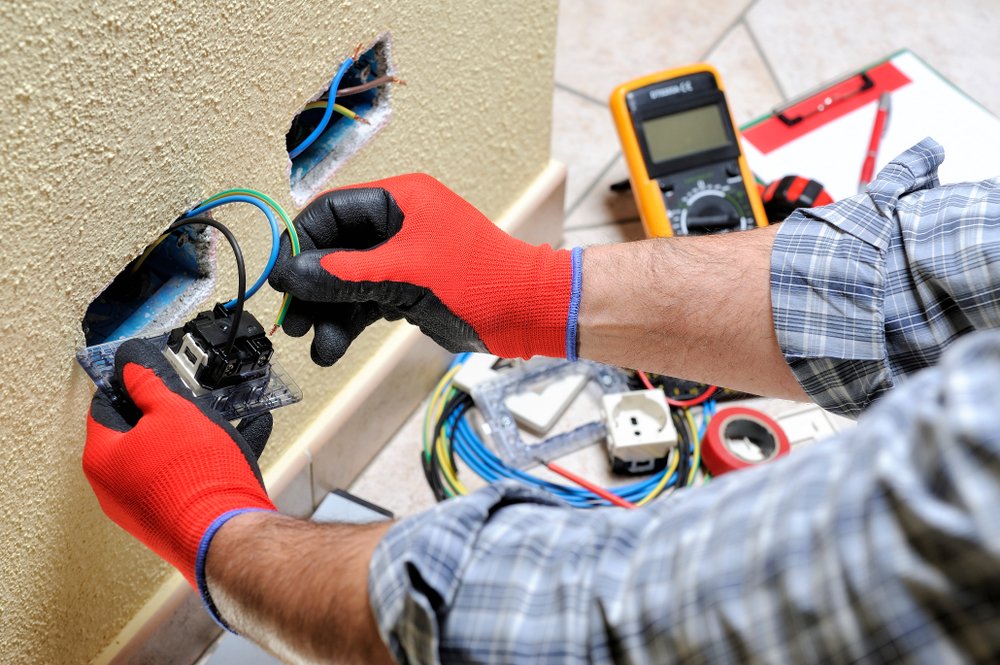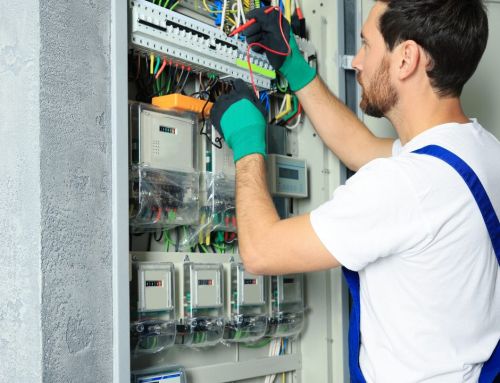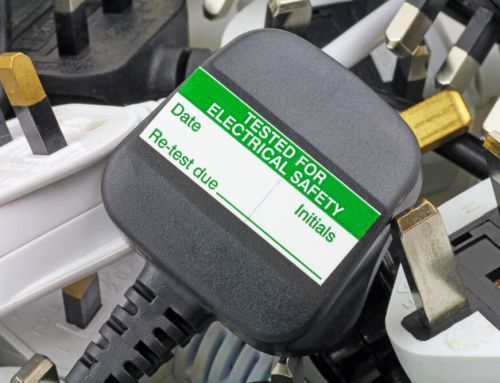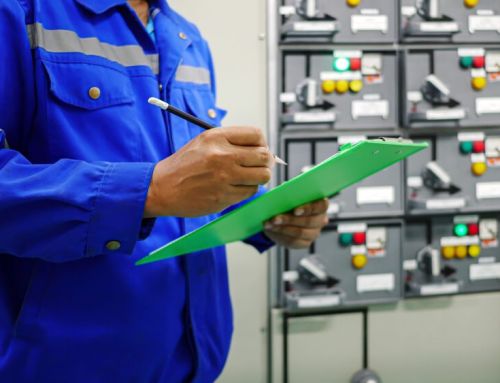
Who Can Carry Out an EICR?
Who can carry out an EICR;
A EICR, or Electrical Installation Condition Report, is a document produced after an extensive examination and test of your electrical system. The aim is to guarantee it meets national safety requirements.
An EICR is essential because it keeps landlords and tenants abreast of any hazards in a property, as well as determining if remedial work needs to be done before a new tenancy begins.
Qualifications (Who Can Carry Out An EICR)
Who can carry out an EICR;
An eicr is an electrical inspection that should be conducted by a qualified electrician. This type of examination helps detect any issues and guarantees that a property’s electrical installations are secure and compliant with applicable regulations.
To perform an EICR, certain qualifications are necessary, such as education and experience. It’s essential to be aware of what these requirements are in order to find a specialist who will meet your requirements.
The initial qualification required is education, which can be acquired through a relevant course at either your local college or through an apprenticeship scheme. This training will equip you with the knowledge to perform electronic circuit repair (EICR) work as well as other related work tasks.
Another qualification necessary to perform an EICR is experience, which can be acquired through employment in the industry as an electrician or other similar roles.
Installing and maintaining circuits, or running tests to check their functionality, are all important tasks. Furthermore, one should be knowledgeable of the safety laws and standards required in the UK.
Once an eicr is complete, the electrician will issue a written report to the customer outlining any issues identified during their inspection and suggesting solutions.
It’s recommended to perform an eicr regularly, in order to address any problems before they worsen. This is because electrical installations age over time and this can cause malfunctioning.
When it comes to inspection frequency, the type of property, its use and other circumstances should be taken into consideration. Homes typically need an eicr every ten years while commercial establishments should receive one every three to five years.
An electronic control room (eicr) is essential for both homeowners and landlords, as it ensures your property’s electrical installation is secure and compliant with law. Furthermore, having an eicr can help prevent potential accidents in your home; hence, making sure you have one regularly is a wise decision.
Experience (Who Can Carry Out An EICR)
Who can carry out an EICR;
EICRs are essential components of maintaining electrical safety on your property. This is because electrical installations can deteriorate with age, potentially leading to hazardous situations like fires and electrical shorts.
An EICR should be conducted by a certified electrician, who can detect and fix issues with electrical wiring. They must carry out the work efficiently and securely, while adhering to current electrical standards.
A qualified electrician will conduct an EICR by inspecting all electrical installations within a property, performing both visual inspection and detailed testing procedures. They then document their findings on a sheet, using this data to make recommendations for improving the installation’s safety.
The initial step of the inspection process is to confirm all wires are connected securely and will not cause any harm in case of an electrical fault. This is accomplished by disconnecting circuits from mains power and conducting both dead and live tests on specific areas of the installation.
This section will also inspect any appliances used in your home and any outdated equipment that could pose a safety hazard to you and your family.
Once the electrician has finished their inspection, they will jot down a series of observations which they code as C1, C2 or C3. Each observation indicates whether there is any danger present or not; if so, then the electrical inspector must ensure all hazards have been removed before leaving the premises.
If the report contains a C2, an electrical inspector will likely suggest that the installation be strengthened to safeguard those present. They may also advise further investigation to pinpoint the exact cause of any hazards.
It is highly recommended to conduct an EICR on a regular basis to protect your property. Doing so can help avoid fire or electrical shorts which can be costly to remedy and cause extensive damage. Furthermore, this is an efficient way of making sure you’re not paying for unnecessary work.
Licensing (Who Can Carry Out An EICR)
Who can carry out an EICR;
Electrical Installation Condition Reports (EICRs) are a legal requirement for landlords of private rental properties to acquire and provide. In order to guarantee the safety of tenants, the law requires valid EICRs be provided to new renters as well as renewing them every five years.
The EICR will identify any defects or hazards that must be remedied to keep your property secure for occupants. These could range from damaged cables to outdated standards and equipment. The inspection is conducted according to the National Electrical Code and Building Regulations.
In most cases, an EICR will take between 3 and 4 hours to complete. This time frame depends on the size of the property and how many circuits require testing; larger houses tend to have outdated wiring which requires extra investigation and testing.
Your electrician can inspect your installation to identify any problems that need addressing and assess its general condition. This allows them to decide the most effective course of action to take in order to rectify issues and ensure your home remains secure for occupants.
An EICR is not something that just any electrical professional should perform – they must be fully qualified and experienced in order to carry it out correctly. Furthermore, they must have both insurance and licensing in order to work on residential or commercial properties.
Landlords should always seek an electrician who is fully certified and insured to protect their property from damage. Doing this allows them to reclaim any money spent on repairs or replacements should something go awry with their building.
Electricians can inspect the entire electrical installation and all circuits that run through it, including power switches and sockets throughout the property.
They can inspect the fuses to confirm they are functioning correctly. Furthermore, an electrician can detect any potential safety risks, such as outdated wiring that hasn’t been updated.
Insurance (Who Can Carry Out An EICR)
Who can carry out an EICR;
When searching for a qualified electrician to perform an EICR, it is essential that they can demonstrate they possess the necessary insurance requirements. These regulations guarantee electrical installations meet UK legislation standards. Regular checks on your property’s electrical systems can reduce the risk of fire and electricity shock by minimizing potential hazards.
An electrician without proof of insurance will not be able to perform an EICR. This can lead to serious consequences, including fines and the loss of insurance cover for property owners.
The cost of conducting an EICR will vary based on the size of the property, how many items need checking and the condition of electrical systems. On average, EICRs cost between £100 and £300.
An EICR report will give a comprehensive evaluation of your property’s electrical installation. It can identify any problems and offer solutions. Furthermore, it could potentially lower your electric bills by highlighting areas where improvements could be made to save money on energy usage.
An EICR report is essential for any homeowner or landlord who wants to safeguard themselves and their tenants from electrical hazards. With this report, you’ll have peace of mind knowing your property’s electrical system meets international standards and is safe for everyone to live or work from.
By doing this, you will minimize the risk of injury or damage due to electrical faults which can be costly in both legal and financial terms. Furthermore, it guarantees you have enough insurance cover in case something does go awry.
Conduct an EICR on your commercial property and residential properties once every five years to guarantee you are adhering to the Electricity at Work Regulations. Doing this will keep your business compliant and help you avoid expensive fines for non-compliance.
Our Pricing
| Our Electrical Safety Certificate Prices |
|---|
| Studio Apartment £67.99 |
| 1 – 3 Bedroom £81.99 |
| 4 Bedroom £89.99 |
| 5 Bedroom £98.99 |
Check Out Our Other Services
| EICR | Commercial EICR | Emergency Light Certificate |
|---|---|---|
| Electrical Diagnostic | PAT Testing | Fuse Box Installation |



